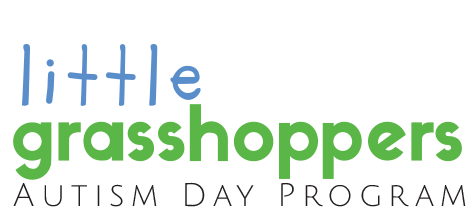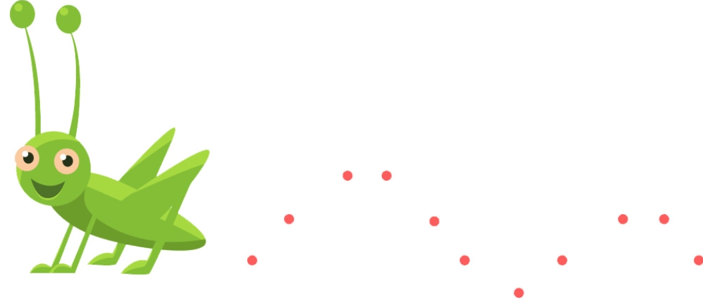ABA Services
Making the choice to use ABA therapy through AAPSA was the best decision we ever made for our son with Autism.
Their approach, as their mission states, is state of the science. We experienced many drastic positive outcomes. Our son, who was 4 at the time, would only eat about 3 or 4 foods. Approximately 18 months later, he was up to 30 plus foods. ABA therapy applied a positive reinforcement for him so that his learning was error-less and easy. As his parents, they also taught us these skills so that we could use them in his everyday life. We have since taken what we have learned and applied it to our daughter who is 5 years old. Even though she has no disability we have been able to generalize the techniques we have learned to our entire household. The ABA experience is definitely one we would recommend to any family seeking opportunities for change.”
-
ABA
We are excited and proud to announce that we now offer Applied Behavior Analysis (ABA) services! ABA is the gold-standard of treatment for individuals with Autism Spectrum Disorders (ASD). The goal of ABA is simple: to fuel positive and significant changes in key areas of daily life including language, social-emotional, and behavioral domains. Our ABA program is offered in a variety of settings including home, community/school, and office, provided by our highly-trained staff. ABA therapy offers the opportunity for learning new skills in settings where the skills are naturally performed by your child (e.g., requesting specific food items from parents at home).Once an effective treatment plan is created our staff will train you on how to apply the treatment with your child in home and community settings.
What is ABA?
ABA is a positive and supportive approach to helping children learn important, developmentally appropriate skills. Through ABA we identify a child’s strengths and areas of need, and develop a treatment plan to help fuel their development in key areas such as language, social-emotional and behavioral domains. Research has clearly demonstrated that children with ASD who receive ABA have much better long-term outcomes than those who do not receive ABA.
EARLY is best!
A wealth of scientific evidence clearly demonstrates that the earlier a child receives ABA, the better the outcomes. Our goal is to identify children in need of services as early as possible so that we can provide treatment and optimize their long-term outcomes!
MORE is best!
Scientific evidence clearly demonstrates that the more ABA that a child receives, the better the outcomes. Our goal is to provide intensive ABA services on a weekly basis so that we can optimize a child’s long-term outcomes. On average, we provide between 20 – 30 hours of ABA to each child, each week.
-
Little Grasshoppers








































Our Little Grasshoppers Autism Day Program is dedicated to improving the lives of children with Autism Spectrum Disorder. Our program is appropriate for children 18 months and older and is based on a full-day schedule. We provide an intensive level of positive support for children with Autism in order to teach new skills and reduce challenging behavior. Our goal is to prepare each child for a successful transition into a structured educational setting and everyday life activities.
What makes us different?
Our Little Grasshoppers Autism Day Program was created to give young children the opportunity to learn, grow, reach their potential and begin the foundation for learning that occurs in elementary school. Our goal is to help each child learn how to adapt in a structured setting while benefiting from Applied Behavior Analysis (ABA) therapy. Our small group setting provides children with vital and natural social interaction.
Our Board Certified Behavior Analysts (BCBAs) work as a team to design treatment programs that are specifically tailored to each child using principles of ABA. We identify a child’s strength and areas of need, and develop a treatment plan to help fuel their development in key areas such as language, social-emotional, and behavioral domains.
Our Team
Our team is comprised of highly-trained and professional staff including a clinical neuropsychologist, BCBAs, and Registered Behavior Technicians (RBTs) working together to address each child’s needs. The quality of training and level of supervision that our RBTs receive ensures that each child is working to their full potential.
Daily Schedule of Activities
We offer a full-day program that engages children in daily social and physical activities that focus on self-regulation, social, and academic skills.
Our activities include:
- circle time
- discrete trial training
- natural environment teaching
- one-on-one individualized therapy
- lunch, snack, and bathroom breaks
DTT/NET
Discrete Trial Training (DTT) is a method that focuses on teaching skills (i.e. language, shoe-tying, counting, hand-washing) in a simplified and structured approach, one step at a time. Natural Environment Teaching (NET) focuses on teaching daily living and social skills in the natural setting. Our Autism Day Program allows children to learn new skills in a DTT setting and immediately implement those skills in a natural setting with their peers while engaging in structured group activities. Each child has a primary therapist to guide them through implementing these skills.
Sensory Room
Our Sensory Room is specially designed to provide a stimulating environment to help children develop and engage their senses. Activities in the sensory room target all their senses and focus on improving concentration, attention skills, awareness, and alertness.
Circle Time
Circle time gives the children an opportunity to come together for group activities and discussion. It provides a time for them to work on their listening, attention, and communication skills.

*For many children, cost of attendance may be covered by insurance.
-
Co-Payment Assistance
ACT Today
Makes medical grants between $100 – $5000 for treatments including ABA, speech, OT, medications and home safety devices. Households with more than one child with ASD, and those earning less than $100,000 per year, will be considered first. Providers are paid directly. Visit http://www.act-today.org/act-today-grant-program.php for more information.
One-time $500 grants are awarded to families in financial need; household income may not exceed $50,000 per year. All funds awarded are paid directly to the vendor or service provider to pay for therapy equipment, safety equipment or services. Email requests for an application along with name, address, phone number and email address to mail@aapsa.net for more information.
First Hand
Provides funding for individual children with health-related needs when insurance and other financial resources have been exhausted. https://applications.cerner.com/firsthand/ for more information.
Fund It Forward
Helps purchase adaptive equipment not covered by health insurance. Visit http://www.funditfwd.org/ for more information.
Helping Hands Program, National Autism Association
Provides families with financial assistance to obtain medically necessary treatments, lab testing, and physician-recommended supplements for their child with autism. This program does not provide funding for ABA or other types of therapy, camp tuition, respite care, fencing, trampolines etc. Funding is extremely limited. Annual net income must not exceed $50,000.Visit http://nationalautismassociation.org/family-support/programs/helping-hand/ for more information.
PAF Co-Pay Relief
Provides direct financial assistance to qualified patients, assisting them with prescription drug co-payments their insurance requires relative to their diagnosis. CPR call counselors work directly with the patient as well as with the provider of care to obtain necessary medical, insurance and income information to advance the application in an expeditious manner. Visit http://www.copays.org/ for more information.
Talk about Curing Autism: Family Scholarship Program
Provides limited financial assistance to qualified families who are pursuing treatment for their children with autism, but are struggling to find the funding. Visit http://www.tacanow.org/about-taca/family-scholarship-program for more information.
TACA Family Scholarship Program
The TACA Family Scholarship Program is available nationwide to help with limited financial assistance for treatment by a Defeat Autism Now (DAN) or Medical Academy of Pediatric Special Needs (MAPS) doctor. Visit http://www.tacanow.org/about-taca/taca-scholarships/ for more information.
United Health Care Children’s Fund (UHCC)
Provides medical grants, up to $10,000, to children 16-years-old and younger who are facing a health related challenge, including autism. A family of four must make $100,000 annually or less. Applicants must be covered by a private health insurance plan. The UHCC pays additional costs not covered by health insurance plans, including copays, coinsurance and deductibles. Visit http://www.uhccf.org/ for more information.
